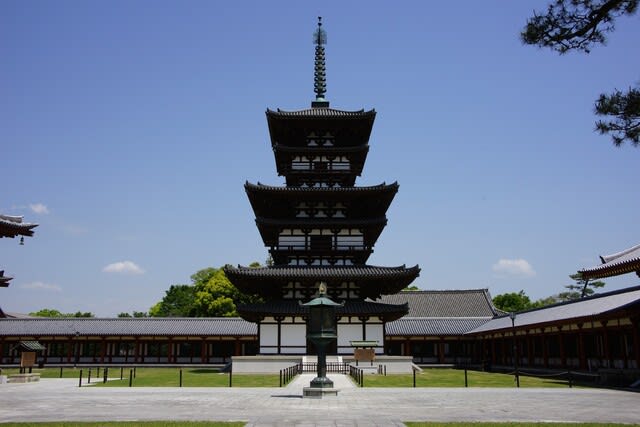The following is a chapter that I sent out on 2020-06-30 titled and those who take part in the side that tramples freedom and human rights.
It is a genuine article that should be re-read not only by the people of Japan but also by people worldwide.
The following is an article published in Hanada magazine, titled "The business people and researchers who are "destroying Japan." It is from the serial column of Mr. Kadota Ryusho.
Hanada is a must-read not only for the people of Japan but also for people worldwide.
For those who have not yet subscribed, you should head to your nearest bookstore right now because it is full of genuine articles.
If you have not yet subscribed, you should head to your nearest bookstore now because it is full of factual articles like this one.
And yet, the price is only 950 yen (including tax).
For five months since January of this year, I have been relentlessly chasing the Corona, interviewing people, and compiling them into a manuscript. It was.
I recently published a book, Epidemic 2020, published by Sankei Shimbun Publishing.
Of all the work, the one I thought about the most was how the Japanese business people and researchers would soon be "destroying Japan." It was a matter of "I don't know.
I continued to wonder if these people think 'I don't care if I lose my motherland' for-profit or ambition.
The fact that the Japanese economy was stranded simultaneously as China's economy was brought to a halt by the spread of the Corona must have been shocking to the Japanese people.
Although we knew that, indeed, we could not have imagined that we had become so dependent on China.
Viewing the situation seriously, Prime Minister Shinzo Abe held a Future Investment Conference on March 5 and said.
'We will return to domestic production for highly dependent products in one country in the supply chain and have high added value. At the same time, we will diversify our production bases to ASEAN countries and other countries, rather than relying on one country for the other products.'
This decision was immediately included in the FY2020 supplemental budget as a subsidy to encourage the country's return of production facilities. It was shown as the government's intention by the incorporation of ¥220 billion.
In other words, it was nothing less than the government's order to "withdraw from China.
However, I was astonished when I saw the results of a survey conducted by JETRO in April of the following month of companies that had expanded into China.
In a survey of 710 member companies by the East China-Japan Business Club, 90% answered that they have "no plans" to change their supply chains or bases.
As the anti-Japanese riots against history textbooks in 2005, the anti-Japanese demonstrations against the Senkaku Islands' nationalization in 2012, and other events have shown, whenever "something" has happened, companies that have expanded into China have always suffered significant losses.
But what's happening in the world right now is quite different from the turmoil triggered by temporary political movements and events.
The uncontrollable hegemony of China.
The international community must now confront this monster, which tramples on freedom, human rights, and democracy, and unapologetically uses force to change the status quo, to protect universal values.
Australia learned of the "U.S.-Australia split and the plan to make Australia a vassal state" at a secret meeting held by then-General Secretary Hu Jintao in August 2004, thanks to Chinese exiled diplomats' information intelligence officers.
Australia's demand for an independent inquiry into Corona has been met with blatant reprisals, including a halt to Australian beef imports, an increase in barley tariffs, and a suspension of Chinese travel to Australia.
But there is no sign of trepidation.
Australians have in mind the determination and conviction that "a defeat here would mean the death of freedom and democracy.
So what about Japan?
Despite the policy announced by Prime Minister Abe, Hiroaki Nakanishi, Chairman of the Keidanren, said at a regular meeting on June 8:
'Japan needs to maintain good relations with China, which is an important market. Keidanren will continue to engage in active dialogue with the business communities of both countries and contribute to economic development through initiatives such as One Belt One Road and a free and open Indo-Pacific region.'
It is a statement based on the idea of a merchant who says, "as long as you make a profit, that's all that matters," with no sense of world trends, governmental intentions, or universal values that people in a free society should have.
But the world is moving in a scary direction.
The United States is already increasing its scrutiny of companies that provide China with technology that can convert to military use.
Of course, Japanese companies are no exception.
One of the companies targeted is Toyota Motor Corporation, which boasts consolidated profits of 2 trillion yen.
In response to China, which has its eye on Toyota's fuel cell technology and is planning to apply it to drones, Toyota is trying to contribute to China through collaboration with Tsinghua University.
But how would the U.S. fare if Toyota's fuel cell technology was used to significantly increase the range of drones and provide significant military leverage, either as a weapon or for reconnaissance?
Imagine drones flying over Japan, or even the United States, in droves.
And let's not forget that the technology, too, is being shaped by China's "thousand-man plan" for inviting advanced technology researchers and university professors from abroad, who have been brought in with unbeatable hospitality.
They live in high-rise apartment buildings with heated swimming pools and gymnasiums. They have been assigned beautiful secretaries from the Public Security Bureau, who happily produce research results for China.
And their contact person is the Japan Society for the Promotion of Science (JSPS).
Even if Japan's business and academic communities in a state of peace senility regret, the Japanese business community and the world of academia cannot help but regret that a repeat of the former Toshiba Machine Co-Combe breach is just around the corner.
It doesn't know that this is a turning point in history, and those who take part in the side that tramples freedom and human rights will not be overdone even if they are pointed.














